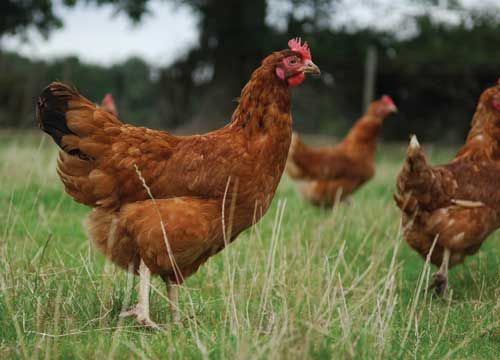
Stonegate is taking steps to cut the number of organic birds on its books because of continuing difficulties in the organic egg market.
We reported last month that Noble, the country’s biggest egg packing company, was looking to switch another 80,000 organic layers over to free range production because of a further decline in sales of organic eggs. Stonegate divisional director Richard Kempsey has now confirmed to the Ranger that the country’s second biggest packer is also looking to cut organic numbers. ’Like the rest of the organic sector, we are faced with declining organic sales,’ said Richard. ’Organic is still suffering. We have to adjust to what the market can stand.’
He said that a letter had gone out to producers outlining a number of options. Stonegate was looking for a slight reduction in numbers, although he was unable to give a figure for how many organic birds the company was looking to lose.
’We have outlined three options to producers but I am not at liberty to give any detail on what those options are,’ said Richard, who said that ongoing discussions were taking place between Stonegate, the company’s Colombina Blacktail (CBT) producers and Waitrose, the supermarket for who the CBT eggs are exclusively produced. He said that Waitrose was probably in a better position than the rest of the market, so the impact on CBT producers would be less than that on others in the sector.
Although Richard Kempsey said he could not divulge the options that had been put to organic producers, the Ranger has been told that two options facing them are either depopulating by 20 per cent or taking a 10 pence price cut on all organic egg sizes. Richard was unable to confirm whether or not that was the case.
He said he was unable to put a figure on how big a reduction the company’s organic sector might be facing because it would depend on which options producers wanted to pursue. He said it was also difficult to put any timescale on the process because that would also depend upon producers’ responses to the options outlined.
Whilst sales of some organic products have held up well in the current difficult financial climate, sales of organic eggs have suffered badly. Tom Willings, Noble’s contract, producers and farms director told us last month, ’The decline in the organic sector has been well documented over the last two years, with the latest 52 week data showing a 14 per cent downturn in volume year on year. As this decline has continued, the expense to Noble Foods of cascading organically produced eggs into our free range sales has grown to an unsustainable level.’
Tom said that Noble had recently invested in organic with the launch of the One organic egg brand and there had been some early signs of success, but the brand itself was not expected to reverse the wider market trend.
’We will, therefore, look to proactively and responsibly reduce our surplus to an acceptable level by way of an assisted conversion from organic production to free range.
As we have done in the past, we will be offering a temporary price for producers converting to non-organic production during mid-flock, covering the additional costs of an organic pullet and a reduced stocking density. We will be working with our producers to complete this process over the course of the next few weeks.’
Tom told the Ranger that rather than abandoning its organic producers, Noble was helping them to switch to free range.
